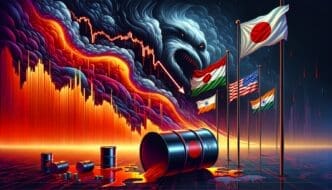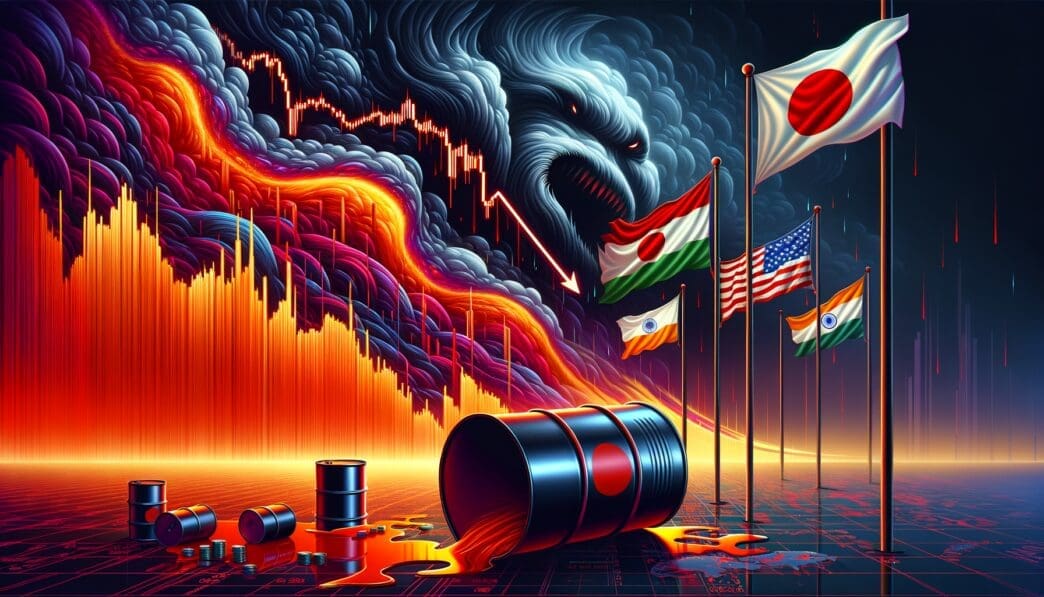Wall Street is experiencing another downturn, mirroring declines in other global markets, as concerns intensify about the potential impact of President Donald Trump’s trade war on the global economy. European and Asian stocks have suffered significant losses, with the main U.S. index approaching bear market territory, and oil prices are also on the decline.
Current Market Conditions:
United States: The S&P 500 experienced a 3.8% drop in early Monday trading, marking its most challenging week since the onset of the COVID-19 pandemic in March 2020. The Dow Jones Industrial Average fell by 1,200 points, and the Nasdaq composite decreased by 4%. Additionally, the price of a barrel of benchmark U.S. crude oil temporarily dipped below $60, a first since 2021.
Asia: Hong Kong’s stock market plummeted by 13.2%, marking its worst day since 1997. Japan’s Nikkei index also saw a significant drop, tumbling nearly 8%.
Europe: Germany’s DAX index briefly fell by more than 10% at the start of trading on the Frankfurt exchange but managed to recover slightly, ending the morning down 5.8%. In Paris, the CAC 40 decreased by 5.8%, while Britain’s FTSE 100 was down by 4.9% in morning trading.
Today, Japanese Prime Minister Shigeru Ishiba expressed his concerns to President Trump, stating that U.S. tariffs could deter Japanese investment in the United States, where Japan has been the largest investor over the past five years. Ishiba urged Trump to consider more mutually beneficial bilateral cooperation and affirmed Japan’s intention to continue negotiations to prompt the U.S. government to reconsider these measures.
The two leaders reaffirmed their commitment to resolving the issue and agreed to appoint teams of representatives on both sides for further negotiations. Ishiba announced that his government will convene a ministerial task force meeting to address what he described as “a national crisis.” During a parliamentary session on Monday, he emphasized the need for Japan to present a counter-proposal and develop a comprehensive strategy for a new bilateral relationship. Despite the challenges, Ishiba ruled out retaliatory measures, citing potential escalation, and pledged his government’s support for the industries affected, highlighting small and medium-sized businesses.
The Ripple Effect
- Economic Uncertainty: The ongoing trade tensions could lead to increased volatility in global markets, affecting investment decisions and economic stability.
- Impact on Small Businesses: Small and medium-sized enterprises, particularly those reliant on international trade, may face significant challenges due to potential tariff impacts and market instability.
- Investment Shifts: With Japan being a major investor in the U.S., any deterrence in investment could have far-reaching effects on economic growth and job creation in both countries.
- Oil Price Fluctuations: Lower oil prices may benefit consumers with reduced gasoline prices but could hurt the profitability of energy companies, affecting employment and investments in the energy sector.
- Global Trade Dynamics: The trade war could lead to shifts in global trade patterns, compelling countries to seek new alliances and trade agreements, potentially altering existing economic relationships.
- Policy Responses: Governments may need to consider implementing measures to mitigate the effects of trade tensions, such as providing support to impacted industries and negotiating new trade terms.








